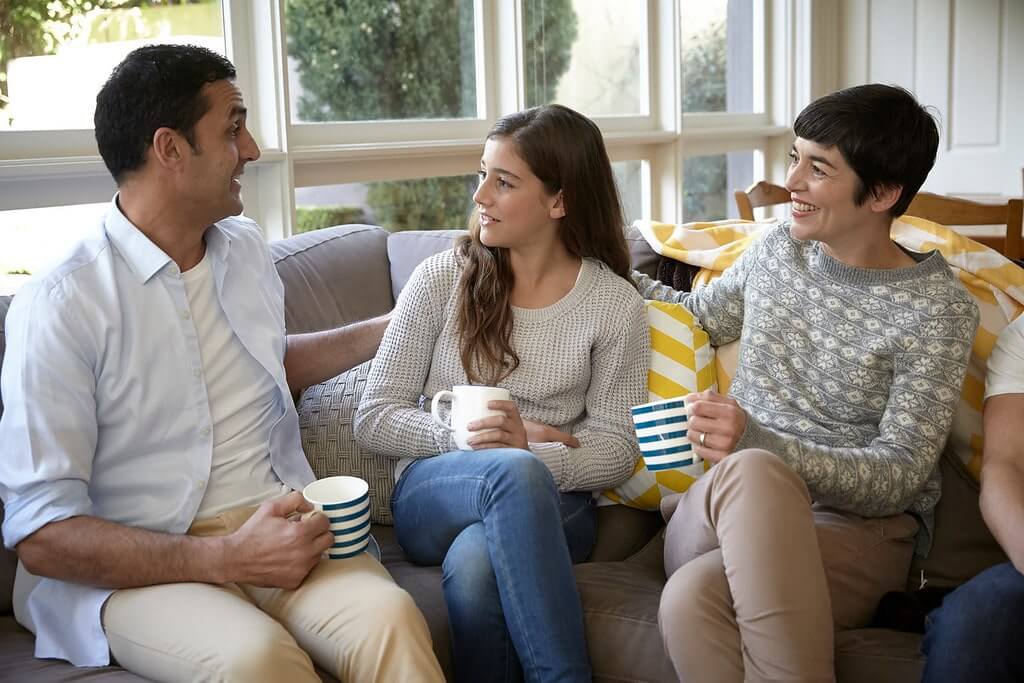Blog
Get your parents to screen for bowel cancer
25 June 2014

By random coincidence, I met two people in the past week who lost parents to bowel cancer. Random, because although I work in cancer policy these were social encounters. Coincidental, because the encounters coincided with a) Cancer Council Australia's campaign to get more people screening for bowel cancer; and b) the release of new data that shows why we desperately need a campaign to get more people doing the test.
Much of our campaign message is built around a tragic paradox: bowel cancer is the nation's second-biggest cancer killer, yet it is one of the easiest to treat if detected early. Around 90% of stage one bowel cancers (those that have not yet penetrated the bowel wall) are cured.
Then there is the simplicity of treating precancerous polyps, called adenomas, which can also be detected through screening. Right now there are tens of thousands of Australians getting around in otherwise good health who have a potentially cancerous adenoma growing inside them. It's a time bomb, in many cases with a long fuse, but a time bomb nonetheless.
Yet data out this week showed that 643,000 Australians threw away their free testing kit when it arrived in the mail. Only 33% did the test.
For the general population, a faecal occult blood test (as used by the National Bowel Cancer Screening Program) is the best way of detecting an advanced adenoma before it becomes cancer. In most cases, adenomas can be removed in a matter of minutes by a surgeon conducting a colonoscopy. Ignore them and there is a high risk they will develop into cancer.
FOBT is also the best way to screen for early-stage bowel cancer - which, like an adenoma, seldom displays symptoms. Cancers detected through the National Bowel Cancer Screening Program are twice as likely to be picked up at early stage as cancers diagnosed through symptoms.
Our analysis predicts that the screening program will save at least 70,000 lives over the next 40 years, even on the poor program participation rates reported this week. We will prevent tens of thousands more bowel cancer deaths if more people take the test.
Therein lies the tragedy of the paradox.
Which brings me back to my two recent social encounters. I was moved by the sadness in the eyes of these two adults, who, on learning what I do for a living, relived the loss of their parents (one in his late 50s, the other in her early 60s). I didn't want to overstate the tragedy of premature death from a curable, detectable disease - not to people who had lived it in a way I could only imagine. Yet both of them agreed, wholeheartedly, with the bluntness of our message. Do whatever you can to save someone else, they said, or words to that effect.
So let's be blunt. The new screening participation report shows that people in the target age group need a good kick in the... you get the idea. We all have youthful memories of parents and other adults telling us to eat our vegetables, don't smoke, wear your seatbelt and so on - all excellent advice that we only appreciate when we mature.
Now we have the best possible way to return serve. So if you have a loved one aged 50, 55, 60 or 65, don't just encourage them to participate in the National Bowel Cancer Screening Program, damn-well insist on it.
And for people aged 50 or over who are not yet eligible for the program (which will cover all Australians aged 50 to 74 from 2020), or for anyone concerned about bowel cancer, please contact Cancer Council on 13 11 20. Our staff can advise on screening options and other ways to reduce bowel cancer risk.
Tags
